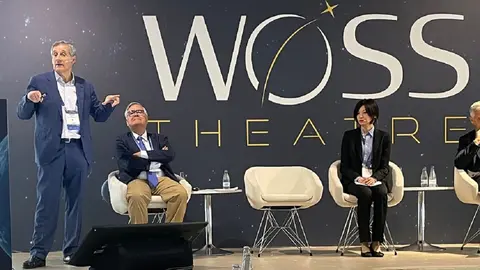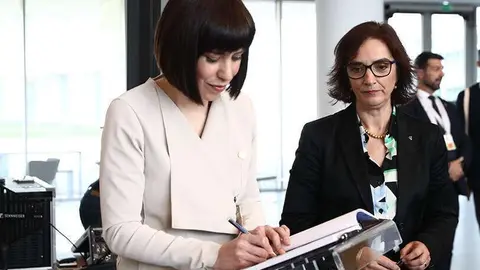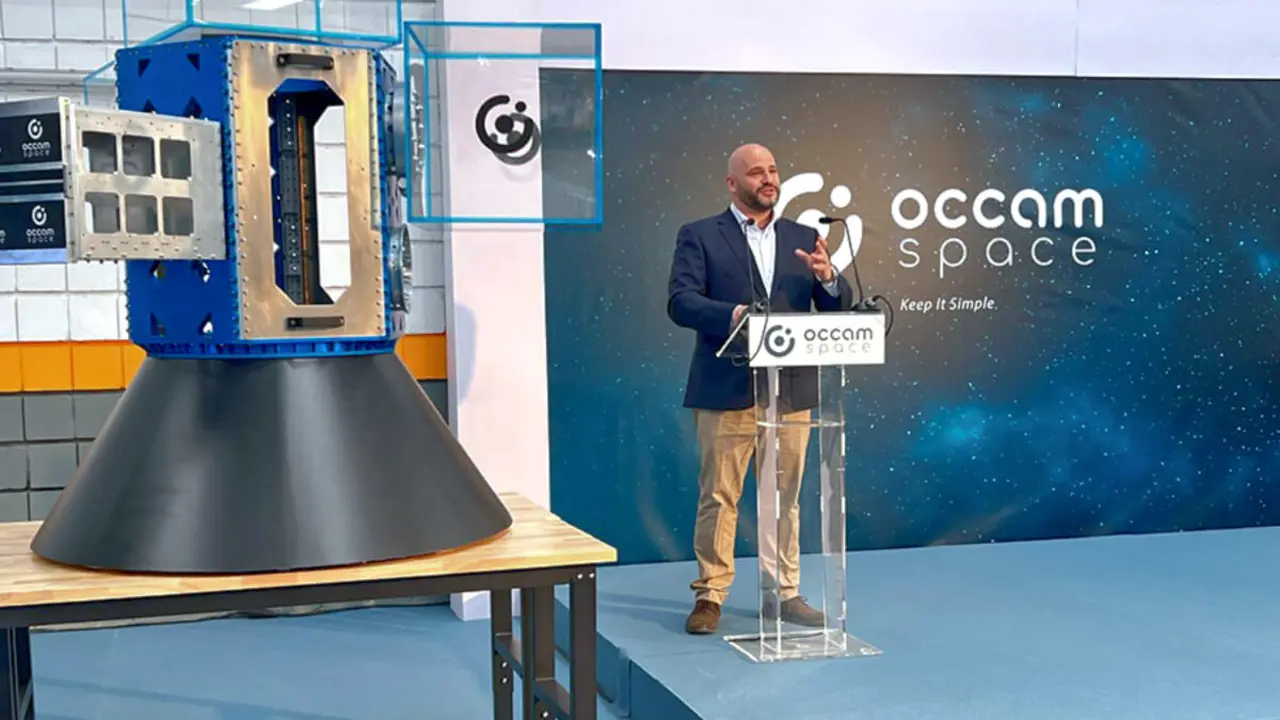These are the new opportunities that the Space Agency opens up for Spanish industry

The acting director general of the Spanish Space Agency (ESA), Miguel Belló, has reviewed the main strategic opportunities that have arisen with the recently constituted organisation, as well as the challenges that it will consciously and voluntarily face.
In his speech to the main national space and defence industry executives gathered on 26 and 27 October in Seville, at a forum entitled "the aerospace and defence industry in Spanish and European geostrategy", Belló outlined the prospects he envisages, which he hopes will lead to greater strength in the sector.
What are the new expectations that have come to light? The director of the AEE stresses that there has been a "conjunction of numerous opportunities". Among them are the new projects included in the Aerospace PERTE, which is going to exceed 5,000 million euros, all with a strategic line and an objective to "generate synergies and optimise resources". "The agency, as I have said many times, has to be a marketer of the Spanish space industry in the rest of the world," he said.
One initiative of great importance is for Spain to acquire a certain degree of autonomy in access to space. Belló stressed the urgency of developing a national vector for launching small satellites. A consortium led by PLD Space and another led by Pangea Aerospace, which has been awarded the 45 million euro project, is immersed in the design and will present its results at the end of the year. They will be evaluated and development will continue on the one that demonstrates the greatest degree of maturity and feasibility, with the aim of completing the prototype by December 2025.
Another extremely important proposal is the Atlantic Constellation, a bilateral project with Portugal "which will probably be joined by Greece in the near future and also by the United Kingdom", he anticipates. From the user's point of view, the aim is to deploy a network of at least 16 small satellites in low orbit to provide data and images on the evolution of climate change and to manage emergencies in the event of natural disasters.

Commitment to IRIS2 of the European Union
From the industrial point of view, Belló wants to raise awareness that satellite manufacturing "is changing, it has to be more like the automotive industry" and the first steps have to be taken to "start the mass production of satellites". And he confirms that the tender to develop and manufacture the eight of the total of 16 satellites that correspond to Spain "will be launched by the European Space Agency (ESA) in November".
He emphasises that the future of security "depends on quantum keys", which is why there is already a "very ambitious" project underway by the Secretary of State for Telecommunications with a budget of 125 million euros. It aims to lay the foundations for a quantum key transmission system (QKD) from geostationary orbits at 36,000 kilometres and from low orbits at less than 5,000 kilometres.
One of the big projects that is coming out of Brussels and which he also sees as a "new opportunity" is the "strategic European response to the US mega-constellations". Its name is IRIS2 and, in it, "Hispasat is in the core team of the project and will also lead the operations". He says that Hisdesat is "in the negotiation phase" to join the industrial team.

He notes that IRIS2 "is going to start with 2,000-3,000 million euros, similar to the beginnings of initiatives such as Galileo, for global positioning, and Copernicus, for Earth observation. But he predicts that "it will end up at 15-20 billion, because it will become the great European system of secure connectivity". And he stressed that another line of opportunity lies in the increase in the defence budget to 2 per cent of GDP by 2029, of which around 4 billion will be dedicated to space.
The fact that the agency exists and that there is an interlocutor for space affairs has generated "a large number of meetings and opportunities all over the world". At the end of May, NASA Administrator Bill Nelson visited Seville and Madrid, and Artemis agreements were signed "to collaborate on projects on the Moon and Mars".
He confirmed that the ESA "is talking with Malaysia - for a satellite navigation issue - with Argentina, Greece, Canada and the Czech Republic" and recalled that the first bilateral agreement that the agency had signed was with the Mexican Space Agency, "with which we have many possibilities for collaboration".

Implementing a national space strategy and plan
"For the first time we have been in international forums where important current space issues are being debated". He revealed his presence at the fourth edition of the Space Economy Forum, which brought together the heads of the agencies of the G20 countries and other nations of the world in Bangalore last July. He said that Spain had not been invited before, "because we didn't have a space agency", he said.
In addition to projects with clear industrial repercussions, there are other initiatives of a programmatic nature with great repercussions at all levels. One is the drafting of a national space strategy, which he defines as a "country" strategy. The establishment of the agency has brought to light the fact that each of the 11 departments with space competencies has "different strategies". So the ESA aims to "devise a single strategy, offering a joint vision of space in all fields", Belló stresses.

Another line of activity that the ESA patron also points out as "new" is to establish the germ of a national space programme. For the moment, "all of Spain's space activity is within ESA, which is very good, and we will continue to support it and increase our contribution," says Belló. "But, at the same time, we want to start to resume a national programme, which existed a few years ago and which has been diluted".
He goes on to say that "it is not yet possible to tackle it", because the government is in office. But once an executive is in place, "we will immediately put out a call for tenders to give life to this national plan", which will begin with a budget of 70 million.

The aim is, "little by little, to have a programme at the same level as Spain's contribution to the ESA", as other countries have had for years. He added that it is intended to be carried out "without subtracting, of course, our annual contribution or specific weight in the ESA, which has been key for Spanish industry and has positioned us where we are".

Another objective set by the ESA, which its director says is "an urgent matter", is to propose to Parliament "a Space Law, which Spain lacks". Not to mention recruiting talent and supporting investment in the sector. "We have a problem of providing public and private funding for our space industries, unlike in the rest of the world".











